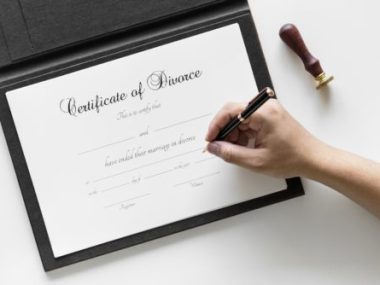
Follow along to find out the difference between an uncontested divorce and a contested divorce and how one of the proficient Manhattan divorce attorneys at Zimmet Law Group, P.C., can guide you toward the one that is in your and your spouse’s best interest.
What is an uncontested divorce?
An uncontested divorce is best if you and your spouse can agree on all divorce-related terms to finalize your settlement agreement. Examples of key divorce terms include child custody, child support, division of assets, and alimony. Specifically, this is achievable if you and your spouse have remained amicable since your separation.
Also with an uncontested divorce, you and your spouse may choose to divorce through alternative methods besides litigation. Examples of alternative methods include arbitration, mediation, and collaborative divorce.
Overall, this is generally known to be the preferred divorce option because it tends to involve less tension, expenses, and time commitment. Though, it is important to note that this can easily become a contested divorce if you and your spouse disagree on even one divorce-related term.
What grounds should I cite for an uncontested divorce?
With New York State being a “no-fault” state, you and your spouse have the liberty of citing fault grounds or no-fault grounds. With no-fault grounds, you can state an “irretrievable breakdown for a period of six months or more prior to the commencement of the action for divorce.”
With that being said, if you and your spouse plan to go through with an uncontested divorce, it may be best to cite no-fault grounds for divorce. Because if you cite fault grounds, your spouse may be tempted to rebut your accusations. A disagreement such as this can quickly lead to a contested divorce.
What is a contested divorce?
A contested divorce is best if you and your spouse cannot agree on critical divorce terms. These proceedings will take place in the presence of a New York court, which will settle the contested divorce terms on your and your spouse’s behalf.
With this route, you and your spouse must attend a compliance conference where the New York judge, who will attempt to make an initial settlement agreement. If not achievable, your divorce will then go to trial. At trial, the judge will hear both your and your spouse’s needs and interests. Ultimately, after evaluating documents and other relevant factors, they will finalize their decision on your divorce.
If you are still unsure of which divorce option is best suited for your and your spouse’s situation, you must consult with one of the talented New York City divorce attorneys at your earliest convenience.
Contact Our New York City Firm
If you require the services of an effective New York City attorney of estate planning and administration, divorce and family law, real estate, commercial litigation, business law, bankruptcy, or landlord-tenant law, contact Zimmet Law Group, P.C. today to schedule a consultation.


